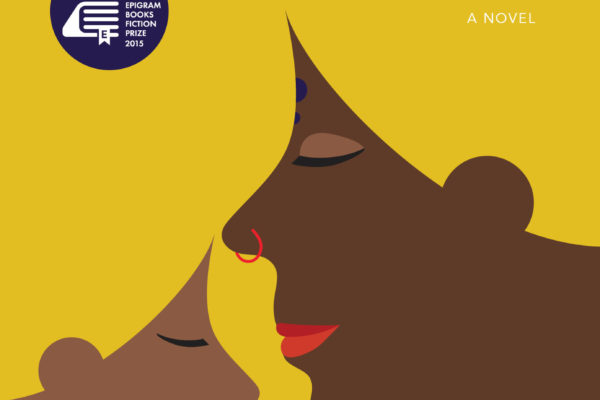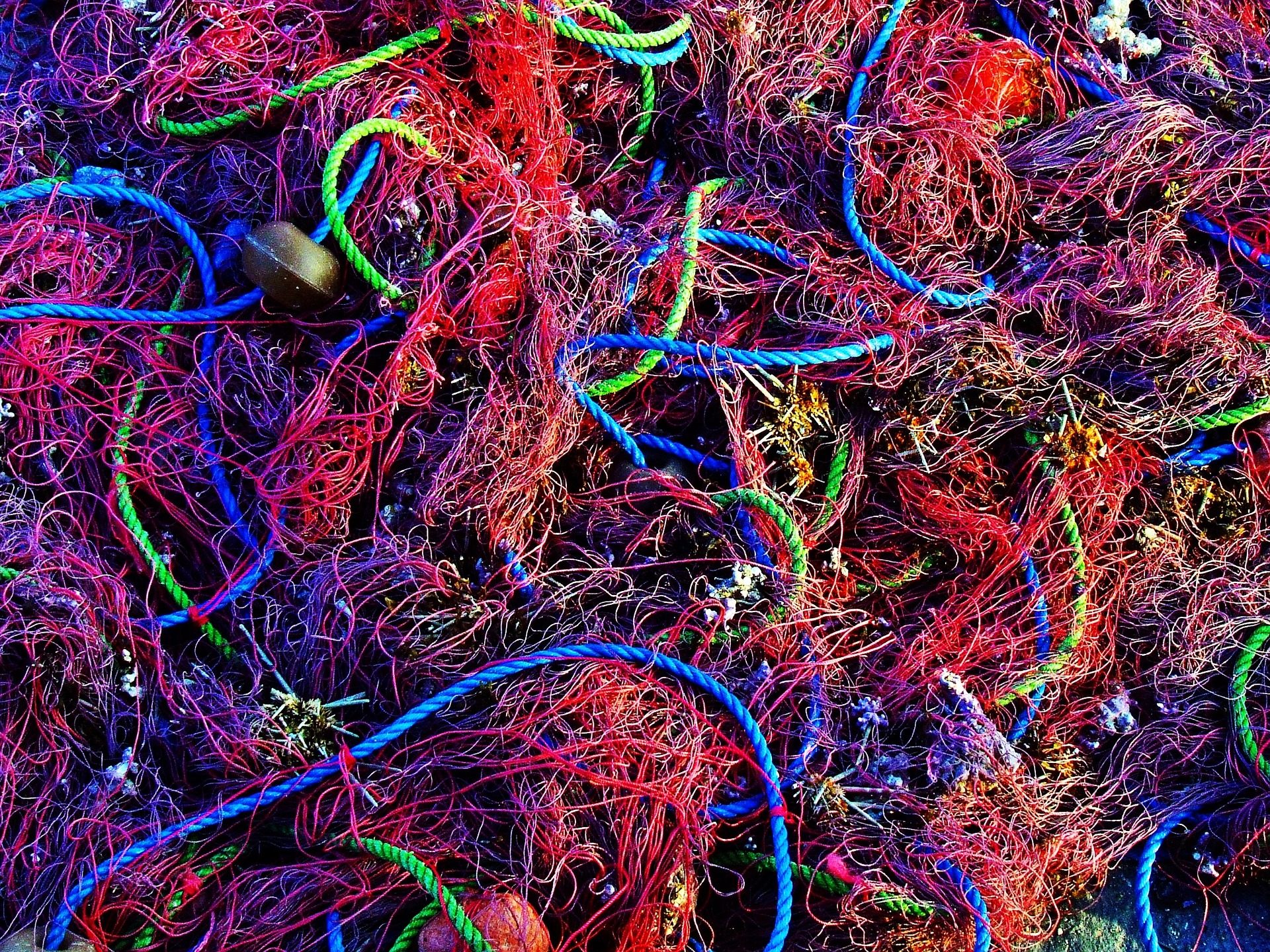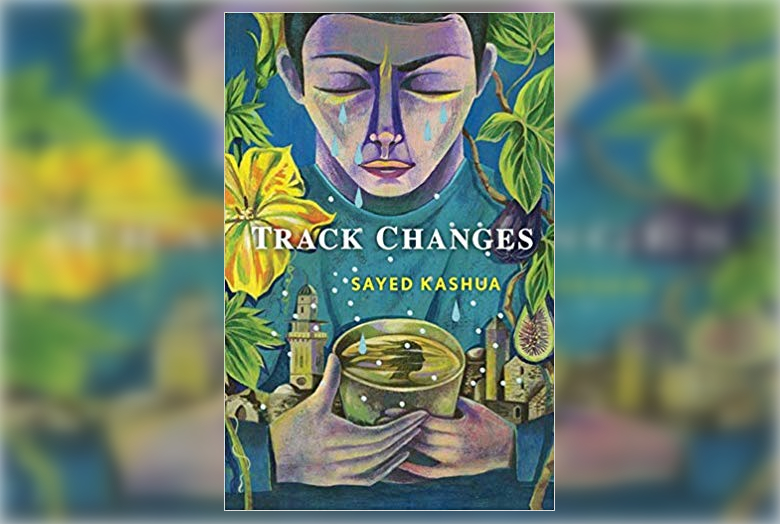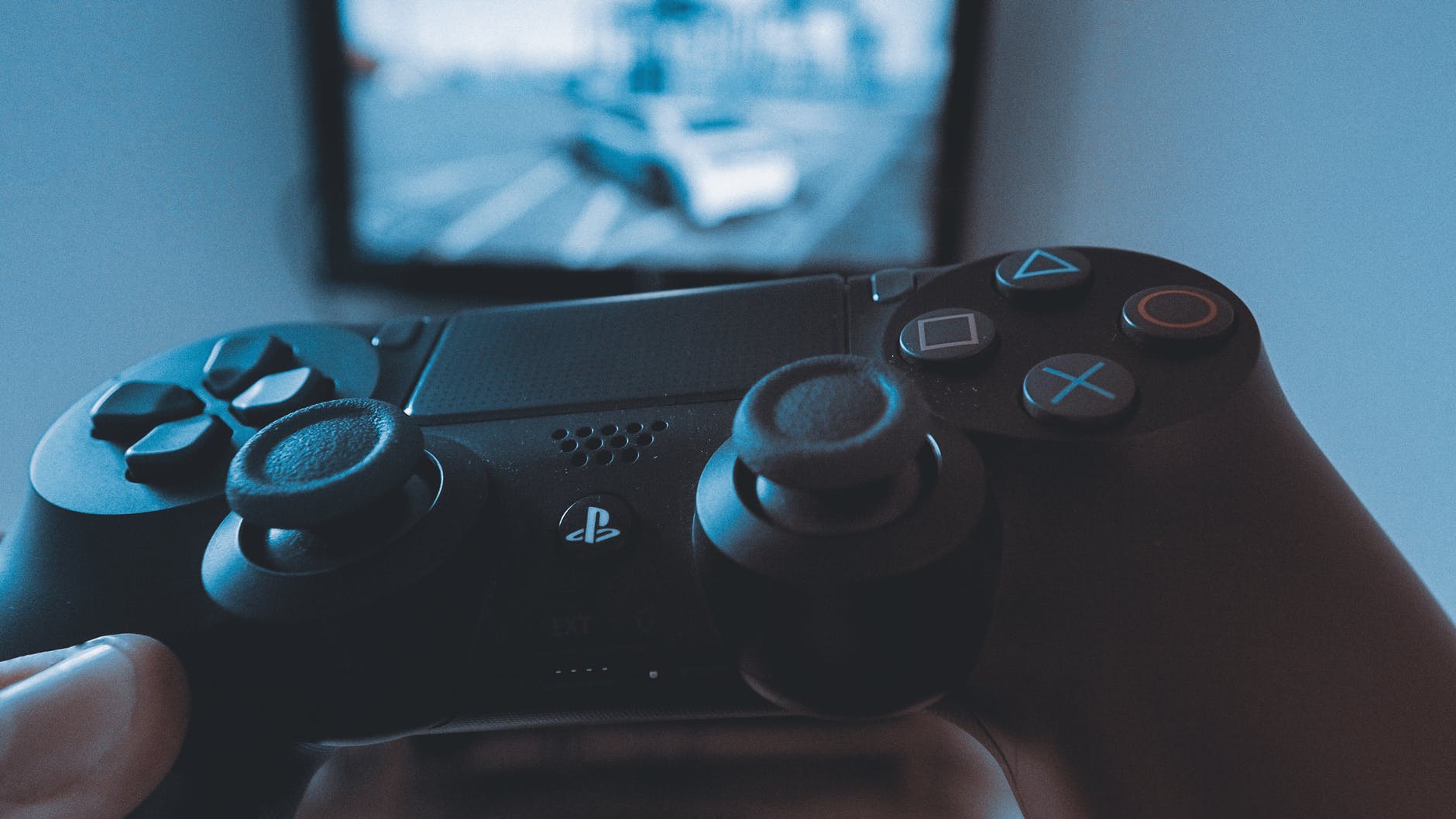By Balli Kaur Jaswal
Sugarbread was dinner for two nights in a row. Daddy asked me if I wanted food from the hawker centre, but I waved him away. “I like this better,” I told him. I made him a slice.
“Very nice,” he said. “Not very nutritious though. Let me go down and buy you some Point-Point Rice. Do you want crabsticks? Some spicy rendang?” I shook my head. I didn’t want to trouble him or anybody. It was part of my plan to get on God’s good side and I had to work harder at it because of Fat Auntie’s visit.
I wasn’t going to reveal to Daddy that Fat Auntie had come over and taken Ma’s jewellery, but it slipped out. Daddy mentioned that he saw Fat Auntie at the hospital and that she looked like she had gained a few more kilos, if that were possible. “She’s as big as a truck, Pin,” he marvelled. “We’ll have to start calling her Fatter Auntie.”
I giggled and told him that she had nearly knocked over our television when she entered the living room. It wasn’t true but it was a funny image.
Daddy snorted and took a big bite out of his sugarbread. The grains of sugar tumbled from his mouth and scattered onto the table. He pressed his thumb into each grain and placed them neatly on his plate. Then he looked up. “Wait—when was Fat Auntie here?”
I took a large gulp of my unchewed bread by accident and began to choke. Daddy leant over and patted my back awkwardly but his eyes still demanded an answer. “When?” he asked.
“Just once.”
“When?”
“Tuesday. In the afternoon. I guess she knew Ma would be gone.”
“What did she want?”
“She went to my room and she took Ma’s jewellery from the closet,” I said. “Nani-ji says it’s not for Ma to keep. She doesn’t deserve it.”
Daddy groaned and buried his head in his hands. “Oh, that’s very bad,” he said when he finally looked up. The fluorescent light buzzed above us and small flying ants flickered around the bulb. “She took all of it?”
I nodded guiltily. It felt as if I had stolen from Ma even though Fat Auntie was the real thief. Suddenly, that familiar rush of anger that used to surge through my body every time I thought of Nani-ji taking up space in our flat returned. She was in the hospital, she was ill and attached to tubes and machines, but she was still causing trouble. Then I remembered that God was observing my behaviour, and I took a deep breath and calmed down. I took another bite of the sugarbread. It filled my mouth with sweetness and made me forget Nani-ji for a moment. When I was finished, I made two more slices.
“Could you buy more bread on your way home?” I asked Daddy as he left for his evening shift. He looked over his shoulder doubtfully. “I still don’t think you should be eating sugar on toast for dinner,” he said. I noticed that his voice was weighed with sadness and I knew it had nothing to do with what I was eating. He was still thinking about the jewellery, about how he would have to explain it to Ma. “Do me a favour and keep it a secret, okay?” he said. “Your Ma will have a fit when she finds out your grandmother has given it to your Auntie. It’s a very sensitive issue.”
“Why did she do it?” I asked Daddy, hoping that he would sit down, remove his shoes and tell me the rest of Ma’s story. There was still so much that I didn’t know and Ma was prone to talking only when the mood struck her. I knew I was supposed to be patient, but I was making so many mistakes with God that maybe it was better that I found out now. But Daddy would not say a word. He gave me an apologetic look, then left the flat without saying goodbye. And I was left alone with God on the wall and the burning caramel smell wafting from the kitchen to fill the space between us.
*
The next day, I was instructed not to go to school. I almost jumped for joy because it was a Friday, and on Fridays we had a double-period art lesson and a shortened recess. Then I remembered we were not supposed to be celebrating. Daddy told me that my responsibility at home was to answer phones because people would be calling to ask about Nani-ji. I was to sombrely tell them that she was “leaving this world” as Daddy put it. “It’s only a matter of hours,” Daddy told me, stroking my hair. “Her lungs are not functioning properly.” He looked genuinely sad, not like he was pretending for anybody’s benefit.
I tried to cry. I squeezed my eyes shut and tried to press out the tears. When it didn’t work, I went to the kitchen and stood close to the rack where we used to keep the onions when the shelves were well stocked. I thought that when the tears started flowing, the sadness would come too. But there was nothing. I realised with guilt that I just wanted the day to be over. I wanted Nani-ji to go quickly so our lives would return to the way they were before she had come to stay.
I know it’s wrong, I mentally told God as I passed Him in the living room. His glare was hot on my skin. I covered my head with my hands and said I was sorry about twenty times before I noticed His expression soften. His eyes transformed from stones to puddles of water and His lips began to curve at the corners. I really was sorry, but I could not help feeling the way I did about Nani-ji. Every time I tried to feel sad for her, her unforgiving face and bony fingers returned to my thoughts. In my mind, she was always pointing an accusing finger at me and Ma. Then I thought of what she must have been like when she was Ma’s age and Ma was a little girl. From Ma’s story, it sounded like Nani-ji hadn’t changed much since then. The only time I ever saw her looking truly happy was when she talked about Praji, the man whom Ma despised so much, like all of her problems had magically slipped off her shoulders and disappeared into the ground below her feet.
I didn’t think many people would call to ask about Nani-ji but I was wrong. The phone rang all afternoon as news spread that she was not recovering. Most of the callers were old women—I could tell from their croaky voices and the quiver in their speech. “God bless you, beti,” one of them said endearingly. I thanked her and looked at God to check if He had heard.
Between calls, I made my lunch and clumsily swept the kitchen floor. Daddy called home twice to check on me. Ma called home once. Her voice was faint and she didn’t say much. “Pin, if you want something for dinner, ask your Daddy to buy a packet of rice,” she said.
“I’ll be fine,” I assured her firmly.
Daddy came home in the early evening and he looked very distracted. His eyes searched the walls and the space above my head and they never rested on one thing. “What’s wrong?” I asked him.
“Nothing,” he said. He shook his head too hard. It looked like he was trying to shake something out of his skull. Then he sat down and took a piece of paper out of his shirt pocket. Before I saw it, I recognised what it was. “A really good number, Pin,” Daddy said. A smile spread across his face. “I think it’s a winning one.”
I exchanged a glance with God and was secretly pleased for this opportunity to put Daddy in his place. I could prove myself to God now. “You shouldn’t gamble at a time like this.”
“I know, but Pin,” Daddy whined. He sounded like a little boy. I put my hands on my hips for added effect and said, “No,” very firmly. I was good at this. Even though she wouldn’t like it, I was good at being like Ma.
Daddy told me the story of how he got the numbers. He swore it was different from how he had obtained the others. While he was doing his shift that day, a man entered the hotel and asked for directions to a bank nearby. Daddy guided him outside and pointed him down the street. As the man was thanking Daddy, a fruit truck backed out of its spot and nearly knocked them both down. Daddy shouted out to warn him and he jumped back onto the pavement. Crates spilt and watermelons, bananas and longans tumbled onto the road. Daddy demonstrated for me how the man still had his hand pressed to his heaving chest when he asked Daddy for his name.
“I asked him why he wanted to know my name. He said he wanted to tell the hotel that they had exceptional staff. It turns out he’s a very distinguished guest. It means I might get a raise, Pin!” Daddy said. His grin stretched from one ear to the other.
He had written down the licence plate number of the truck, the number of fruits that had spilt out, the number of the street, the date and the exact time he had seen it on the hotel’s clock when he had walked back in. He pointed to the paper and explained each number to me. “I have to buy the numbers today before the shops close,” he said, looking out of the window. The sky was getting darker. Dense clouds gathered above the buildings and hid the setting sun from our view. I got excited hearing his voice. For a moment, I forgot that I didn’t believe in the lottery.
“You can’t go,” I said. “If you buy tickets, I’ll tell Ma.”
Daddy was taken aback. “Come on, Pin. It’s just this once. I’m definitely going to win,” he reasoned. I shook my head. “I’ll buy you whatever you want for dinner.”
“No,” I said but I felt myself relenting. It wasn’t the food. It was the hope in his voice. I, too, thought he might win. I looked at God again. Surely something good was lying in store for us, and maybe this was it.
“You can come with me,” Daddy said. He must have already known that I would say yes because when he went back to the door, I noticed that he still had his shoes on.
The plan was to buy the lottery tickets, then walk to McDonald’s where we would have dinner together. Ma did not approve of fast food and she never allowed me to eat anything at McDonald’s. “How can anybody eat something that’s packaged like that?” she asked me one time when we passed the restaurant. People unwrapped burgers from colourful wrappers and sank their teeth into the soft buns. “It’s food. It’s not a meal,” she said. “I hope I’ve taught you that there’s a difference. Like a house and a home.”
As Daddy and I crossed the basketball court, I heard a familiar shout. “Girl!” Deven hollered, running towards me. “Oi!” He stopped when Daddy turned around. “Oh, hello, Uncle,” Deven mumbled.
“Hi, boy,” Daddy said. “You’re Pin’s football friend, I see.” He nodded at the ball tucked under Deven’s arm.
“Yes, Uncle,” he said. Then he turned to me. “How come you never join us any more?”
I look over his shoulder and saw Kaypoh on the court. Behind him, Roadside was shuffling around the ball. “Just busy,” I mumbled. I couldn’t give the real reason in front of Daddy—that I didn’t want to be called Roadside’s girlfriend. Worse than that, I didn’t want the boys laughing at the thought that Roadside might have an Indian girlfriend.
“We need a goalie,” Deven said.
“She can join you boys today,” Daddy said. I looked at him in surprise. He laughed. “I’ll go and buy your dinner, Pin, and I’ll run my errands. You stay and play with your friends. You deserve to be having some fun too. It’ll take your mind off things.”
He probably thought I was acting so strange because I was upset about Nani-ji, but I was more concerned about what God was planning for me. I had felt His stare on my back when we left the flat. “Okay,” I said. Daddy tipped his head and jingled the keys of the flat at me. “Only for about a half-hour though, Pin. I’ll walk back this way, then we can go back upstairs together. We only have one pair of keys between the two of us and I don’t want your Ma calling and getting worried.” Being caught was what he was more afraid of, I knew.
“You’re not wearing proper shoes,” Deven said. “Can you play barefoot?”
“Yes,” I said.
The other boys were gathered on the courts already. They threw their shirts and wallets into a pile. I felt guilty about removing my karra so I sent God a hasty apology. I laid it down carefully near the boys’ valuables—watches, Walkmen, loose bills held together with a paper clip.
“I’m the goalie,” I called. Kaypoh’s eyes narrowed when he saw me. Roadside spoke up.
“Okay, but the goalie is in charge of getting the ball if it gets kicked out of the court. Don’t be a chicken like last time,” he warned.
“I’m not a chicken,” I told Roadside. He shrugged and stalked off.
“Let’s play,” Kaypoh shouted at the boys and they all spread out across the court.
Ankles and feet shot out and darted across the court as if they were separate from the bodies to which they belonged. I kept my eyes on the ball. I darted quickly from one end of the goal post to the other in quick movements as the boys from the other team came closer. The boys on my team were too good to be beaten. Every time the ball came close, they jumped in and kicked it back to the other side, sending the other team running in the opposite direction. I was supposed to be happy for my team, but I really wanted the ball to come spinning my way so that I could throw my body across the goal like the World Cup goalies on television. A goalkeeper for a weak team could save the day, and how could God punish me after seeing that?
But it became clear to me pretty early that the boys had tricked me again. I was only the goalie for this side because the team was so good they didn’t really need somebody to defend the goal post. If they really thought I was good enough, they would have put me on the other side. The goalkeeper for the other side wiped the sweat off his brow with the back of his hand as Roadside kicked the ball past his head.
“Goal!” they all shouted, giving each other high-fives.
It started to drizzle. Dark clouds moved quickly over the sky. Ang Mo Kio was smaller and full of shadows during monsoon season. Falling leaves and twigs stirred on the ground until they finally settled. I saw a large snail inching along the edge of the court, his body slick and bloated.
“Girl! Stop daydreaming!” Kaypoh shouted. I quickly shifted my gaze from the snail to the ball. The game had started again. The ball rolled towards me and I pitched myself forward to protect the goal post. Then Roadside darted in and with a flick of his ankle, he sent the ball sailing away from the post. The boys on my team relaxed and praised Roadside until they realised that the ball was still rolling and an old uncle was riding by on his bicycle. Roadside called out to warn him. “Sorry, Uncle! Ball!”
The uncle swerved slightly to avoid hitting the ball but his tyre knocked it off the court. He kept going, muttering under his breath and glaring at all of us. “Raining—all of you will get sick!” he shouted. Nobody paid attention to him because our eyes were fixed on the ball, which was still rolling. Some boys began to chase after it, but it was too late. The ball rolled straight into the canal. Everybody groaned in unison.
“Girl,” Kaypoh said. He nodded towards the canal. “Go.”
I hesitated. The rain was really starting to pour down and it was beginning to pool in the canal. The boys danced around and shook their hair at each other, spraying the air with water. I stayed close to the goal. I knew there was nothing they could do to me if I didn’t want to go into the canal.
“Go on,” Roadside said.
“It looks dangerous,” I said.
Roadside sighed. “Come on, Girl. We talked about this. You’re the goalie and the goalie is in charge of getting the ball.”
Girl? Roadside had never called me that. I didn’t understand why he was being so rude to me. It was as if he wanted to be more like Kaypoh.
“You were the one who kicked it,” I told him.
Roadside moved closer to me and under his breath, he said, “Come on, Pin. I’ll help you if anything happens. If you don’t do your job, you can’t play with us any more.” Loudly, he repeated this. “You can’t play with us.”
“Okay, fine,” I said. I walked reluctantly to the canal. It wasn’t so bad. There was some water but I could see the football floating slowly towards Avenue 5. That was where the McDonald’s was, where Daddy was probably waiting in queue now.
There was an iron ladder propped on one side of the canal and it was easy to lower myself in. The boys cheered as I went in and for a moment, I felt brave and proud. Then I heard the water below me. It was moving a little bit faster now. I clung to the last rung of the ladder and tested the water with my feet. It was cold, but it wasn’t too deep. I took in a deep breath and told myself to be calm.
Roadside shouted encouragement from the top of the canal. “I can see it! Just reach to your right.” I held on to the last rung of the ladder and planted both feet on the bottom of the canal. The city looked very far away from this deep end of the ground. I saw wheels and feet, but not the cars and the people attached to them. Buildings looked even taller and the sky seemed to stretch for miles. The rain kept pouring and I knew I had to be quick, or the water would start to rise.
I reached for the ball but a small current shot it forward and I had to stretch further to get it. I couldn’t reach. My fingertips barely grazed the ball. Then more water began to rush into the canal from the pipes on its sides, and it swept the ball further away. I let go of the ladder and waded towards the ball. The water was just below my knees and I had plenty of time before it rose. It looked like the rain was about to stop anyway.
I caught the ball before it drifted away again and tucked it under my arm. As I turned, I felt something crawl over my foot. I remembered seeing a snake in a dry canal once when Daddy and I were walking along a bridge near Bishan Park. I would have mistaken it for a small tree branch if Daddy hadn’t told me to stop and watch its movements.
I kicked and shrieked and stumbled, feeling the water seep into my shorts. When I looked up, the boys were still looking into the canal. “Throw the ball up here, Girl! Why are you sitting?” I pushed myself up and rushed back quickly to the ladder. It was just a loose branch. A wet pile of leaves, I told myself.
I had to throw the ball back up to Roadside because I couldn’t climb up the ladder without the use of both of my hands. I tossed it up once but it fell back on me. “Try again!” he shouted. “And hurry up.” He sounded anxious. I threw the ball as high as I could, aiming for the road. I hoped it would bounce clear across to the other side and get squashed by a speeding car for all the trouble it was causing me.
Then I heard a dreadful gushing sound. From two pipes on the high walls on either side of me, muddy water shot out and pushed me down on the seat of my pants again. At first the boys laughed, but when they heard my strangled screams, they began arguing with each other. “You go in and help her.” “No, it’s too deep.” “You go in.” At first, I heard their shouts mingling with traffic and the patter of rain against the trees and every sound of the neighbourhood. Then the water went over my head, and I could hear nothing.
The water carried me forward and my lungs felt like they were about to burst. I waved my arms around, looking for something to hold on to, but all around me were just smooth, tall walls. Everything went dark for an instant and I thought I had drowned but then I realised I was just being pushed under the bridge by the rushing water.
This was when I saw God. I saw him just like the first time Ma told me that God was everywhere. There He was in the high branches of the trees, there were His eyes staring out of the muddy water. He peered over the bridge and sat with coarse feet dangling over the sides of the high walls. Help, I pleaded with Him as more water seeped into my nose. My throat burned. Please help.
The water didn’t stop rushing and the rain became heavier but as I was being pushed forward, I felt something cold and hard against my ankle and I quickly hooked my leg around it. It was another ladder, on the other side of the canal. I couldn’t believe that the water had carried me so far. I pulled myself forward and held tightly onto the rungs above me. I waited until I had stopped coughing, then I climbed out of the canal. There was nobody around. The boys had scattered. Roadside was gone. Daddy was nowhere in sight even though he was due to come walking down this path and see me sitting on the pavement in the rain, soaked to the bone and shivering from a near-death experience. Even God was gone. If He was around though, I knew what He would say. He would look at my short hair and my bare wrist and he would count every evil thought I’d had about Nani-ji and every dishonest thing I’d ever done. He’d raise an eyebrow at me and say, Now we’re even.
*
There was water still in my ears when I entered the flat. I tipped my head to one side to shake it out and didn’t notice Daddy rushing towards me. “Where were you?” he demanded to know. “And what happened? I walked through the basketball court but all of you were gone. Were you playing in the drains?”
I gave Daddy the short version of what had happened. I didn’t tell him how the boys made me go into the canal. I didn’t want him to tell Ma. She would probably confront the boys and embarrass me. It didn’t matter anyway. I was never going to play football with them again.
“I just went into the canal to get the ball and I fell a few times. That’s all.” I looked past Daddy’s shoulder as I said it. He didn’t catch my lie. He was thinking about something.
“Your Ma just called,” he said gently. “Nani-ji has passed away.”
I sank into the rattan chair in the living room. Daddy didn’t bother to tell me that the water from my clothes was soaking through the seat covers. They were old and faded anyway, with brownish prints of wide flowers and curling stems. Passed away, he’d said politely, like she had just gone from one room to another. If I had drowned in the canal a few minutes ago, would they have said the same about me? Would the newspapers have printed a story about a stupid girl who had jumped in to save a ball to impress the boys? Was that all it was, passing away?
“She died?” I asked Daddy, just to confirm. He nodded and put his hand on my shoulder.
“You’re shivering, Pin. You should take a shower and get into some dry clothes. We’ll need to go to the temple this evening. There will be prayers tomorrow morning, then the funeral…”
There was a low buzzing in my ears, like the sound of the flying ants flicking against the fluorescent lights. It grew louder and absorbed Daddy’s words. Nani-ji was dead. Nani-ji was gone. There were nights when she had slept that I noticed how stiffly her fingers were curled like the edges of dry leaves. I imagined her in a hospital bed now with her eyes closed, her fingers flat on the mattress, her legs stretched out ahead of her. Then I saw Ma sitting by Nani-ji’s side, smoothing out her hair, speaking to her for the last time. She was whispering something but I couldn’t hear it—the buzzing noise in my ears blocked out everything else. Ma’s face was drained of colour and her skin was covered in fiery red patches.
Daddy put his arms around me when I began to cry. “Oh Pin. I know. I know, Pin.” But he didn’t. He didn’t know anything. I was relieved to be sad, finally, and a part of me was crying for Nani-ji. When I thought hard enough, when I recalled the few moments we had when Nani-ji wasn’t meddling in Ma’s business or giving me her disapproving scowls, I felt a short, sudden jolt reminding me that I would never see her again. But I was crying because I almost drowned that afternoon, because I didn’t want to spend the rest of my life eating sugarbread for lunch and dinner, because I didn’t think Daddy would ever win the lottery, because Fat Auntie had taken Ma’s jewellery. I was crying because I felt stupid for thinking that things would go back to normal in our flat. Things had never been normal.
“I know you’re sad. But it was your grandmother’s time,” Daddy whispered into my dirty hair.
I didn’t say anything. I was tired and fed-up, not sad. The only person who could see into my mind and know the difference was God, but He was strangely silent.
Excerpt from Sugarbread, published by Epigram Books.
Balli Kaur Jaswal is the author of “Inheritance” which won the Sydney Morning Herald’s Best Young Australian Novelist Award in 2014 and “Sugarbread”, a finalist for the 2015 inaugural Epigram Books Fiction Prize. She has been a writer-in-residence at the University of East Anglia and Nanyang Technological University. Her third novel “Erotic Stories for Punjabi Widows” (Harper Collins/William Morrow) will be released internationally in March 2017. She lives in Singapore, where she is working on a fourth novel about three sisters who go on a pilgrimage to India to reconnect with each other after their mother’s death.




